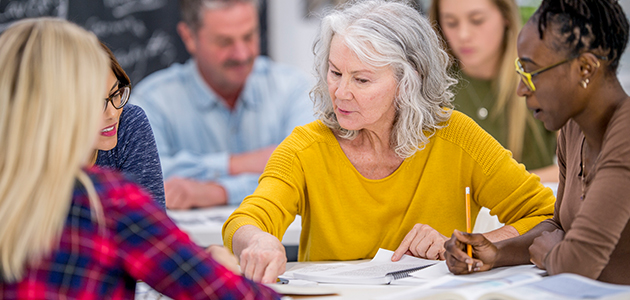
January is that wonderful “blank slate” month. It’s the start of a brand new, unblemished year full of possibilities, and one of the best ways to make a noticeable difference in your life is to commit to exploring one new hobby, skill or activity every single month, all year long.
Aside from simply being fun and exciting to imagine an entire year of learning stretching out before you, research has proven that learning new things actually rewires your brain. Scientists used to believe that our brains “hardened” at about age 25 and stayed solid for the rest of our lives, but in fact brains are incredibly plastic.1 That means that even older adults can see real transformations in their neurocircuitry just by learning new things and continuing to practice those skills.
To make a long story short, a fatty tissue called myelin can help increase the speed and strength of the electrical signals in our brain. That process, called myelination, happens when we learn new skills and continue to practice and perfect them.2
So all you have to do is choose 12 fun new things to learn and let your brain do its thing! Now is the perfect time to take that course, explore that hobby, or learn that skill you’ve always wanted to try. Consider these ideas as you plan your year of learning:
- Learn a new language. Even if you never plan to travel to Italy, it’s still pretty cool to know how to say, “Pass me the parmesan cheese” if you’re at an Italian restaurant. Fluent U has a list of the 30 best online language courses for any budget, but check your library, community center and local colleges too.
- Write. Sure, we all know how to write, but honing a specific skill, be it poetry, or the art of the short story or long fiction, is a great way to share your own stories and perspective with the world. Look for writing classes in your community.
- Explore the arts. There are countless ways to explore your artistic side. Local art societies, community centers and seniors’ centers are bound to have a wide range of art classes for both beginner and more experienced artists. If you don’t want to commit to an entire course before you’re sure you’ll like the medium, look for one-day workshops instead. Try your hand at:
- Watercolor, oil or acrylic painting
- Life drawing
- Calligraphy
- Pottery
- Photography
- Pastels or charcoal rendering
- Don’t forget about performance art. If you’ve always wanted to learn to play the ukulele, or you think you’re a pretty good shower singer, or you’re positive you could have had a career on the stage, look for community theatre groups, choirs and bands to join. You might even consider taking lessons to continue honing your skills. If you have a willing partner, ballroom dancing is a wonderful way to learn new skills and get a bit of exercise in the process.
- Go back to school. Many colleges and universities allow people to audit courses. That means you participate in lectures and assignments, but you don’t receive any credit towards a diploma. Often seniors can audit classes for free – and sometimes courses are available online – but check with the school you’re interested in to find out. For more information on auditing courses, visit org.
- Pick up a new hobby. As an added bonus, crafters are now becoming more social, often meeting weekly or monthly to work on projects together. It’s a great way to expand your social circle and to learn from people with more experience than you may have. Consider exploring:
- Knitting or crochet
- Origami
- Woodworking
- Paper crafting and scrapbooking
- Embroidery
- Macramé
- Sewing and quilting
- Model making
- Stamp collecting
- Read. A whole world of learning is literally at your fingertips when you pick up a book. Delve into topics that have always interested you and learn more about times, places and people who fascinate you. Your local library is the perfect place to choose a subject since you can borrow all the resources you want for free.
- Explore your family tree. Learning about the people who came before you is fascinating, and it’s a gift you can pass on to generations to come.
- Puzzle it out. Jigsaw, word and number puzzles are a great way to keep your brain active and engaged.
- Volunteer. Finding out about a new organization that needs your help, meeting new fellow volunteers, and engaging in activities to help support the community are great ways to learn both practical and social skills. Check out MyForesters.com for volunteer opportunities right in your own community.
Think of your yearlong learning journey as a fun and fascinating way to enjoy new experiences, meet new people, and broaden your mind while you’re helping to keep it as young and healthy as possible.
For 50 more fun things to learn visit LDS.org, and for 15 free ways to learn something new visit Wise Bread.
SOURCES
1,2 https://lifehacker.com/the-science-of-practice-what-happens-when-you-learn-a-510255025
416894A CAN/US (01/19)




